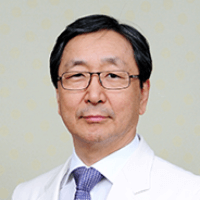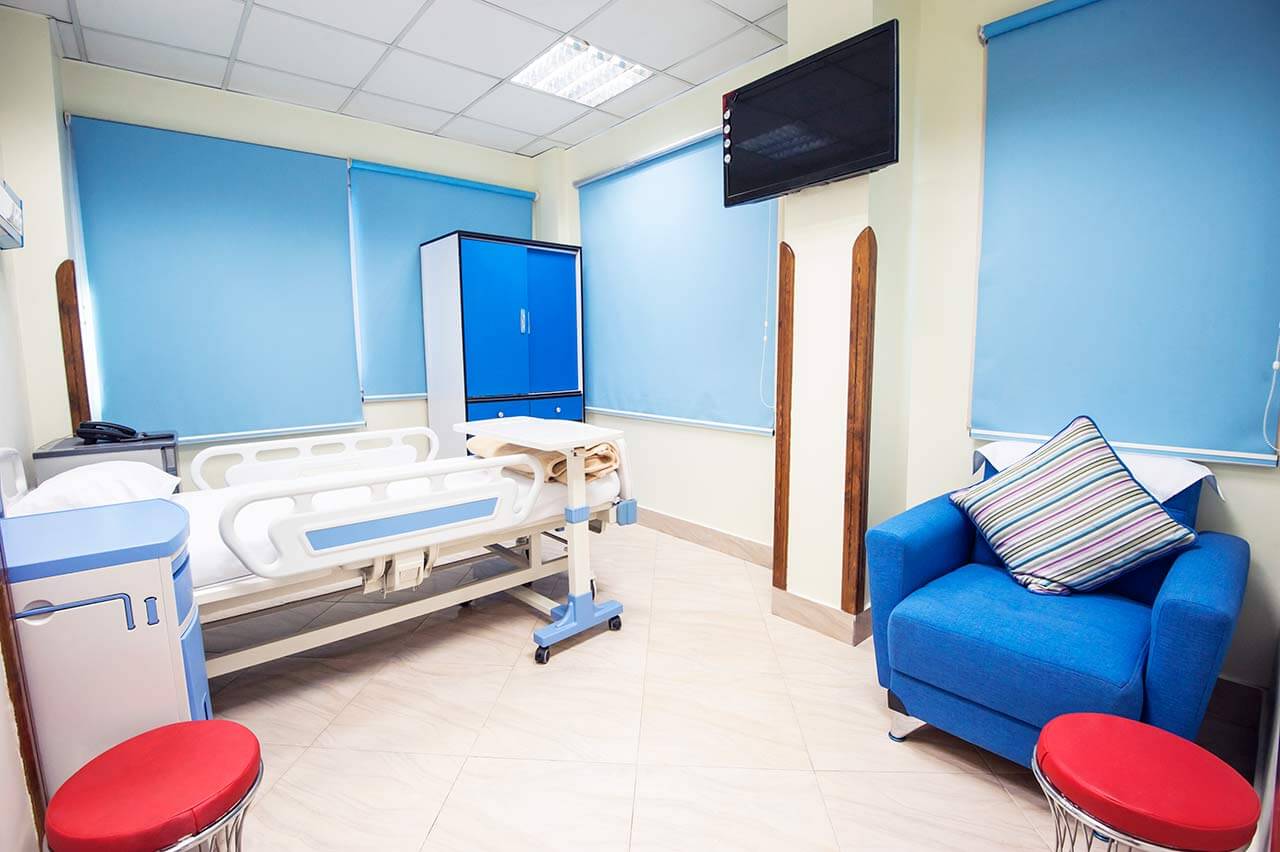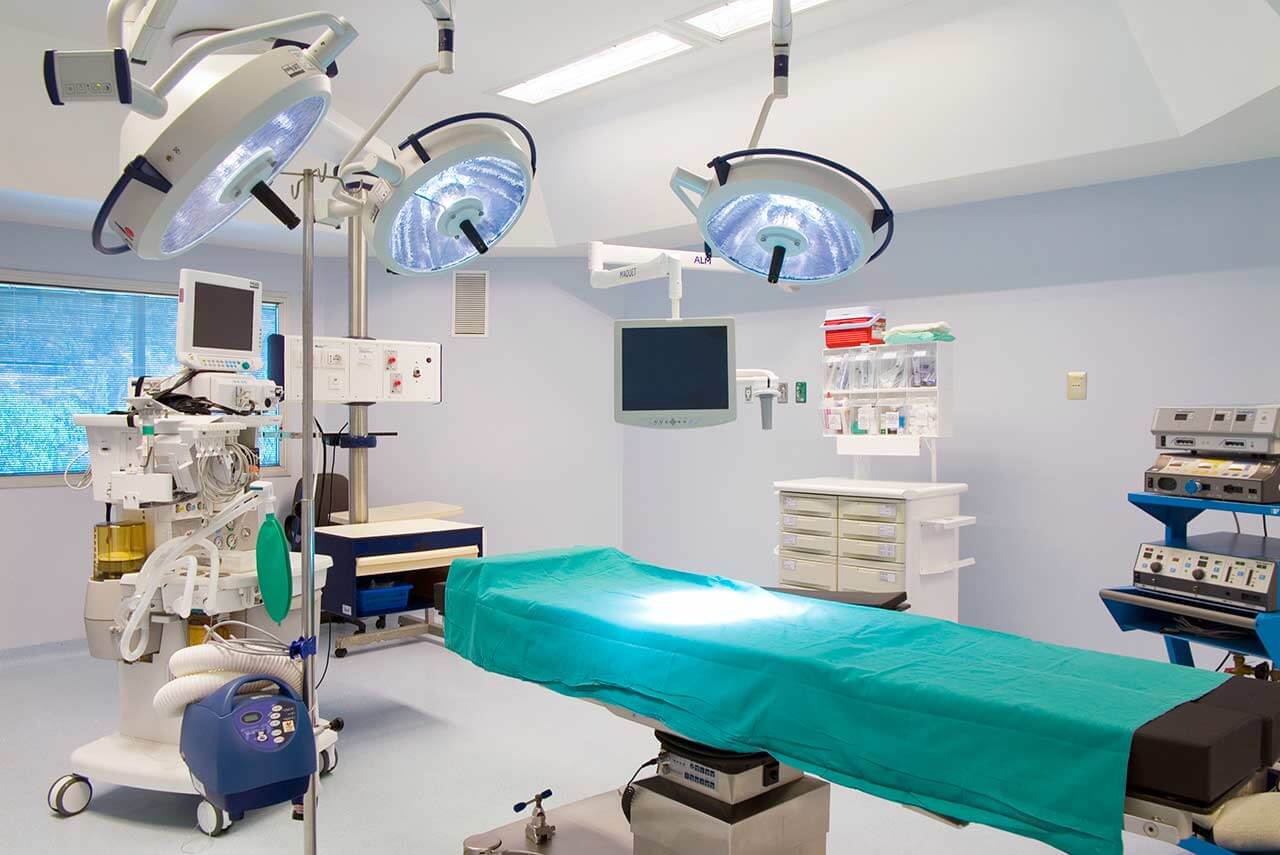
The program includes:
- Initial presentation in the clinic
- clinical history taking
- physical examination
- laboratory tests:
- complete blood count
- biochemical blood analysis
- metabolic analysis of blood
- cardiovascular disease risk markers
- inflammation indicators (CRP, ESR)
- indicators of blood coagulation
- doppler/duplex scanning of lower extremity vessels
- angiography or MRI (on indication 1200 €)
- nursing services
- consultation of all leading experts
- development of individual treatment plan
- written statement
Required documents
- Medical records
- Doppler ultrasound/duplex scanning (if available)
- Angiogram (if available)
Service
You may also book:
 BookingHealth Price from:
BookingHealth Price from:
About the department
The Department of Adult and Pediatric General Surgery at the Samsung Medical Center offers the full range of services in this medical field. The department specializes in gastrointestinal surgery, hepatobiliary surgery, colorectal surgery, breast surgery, endocrine, vascular and pediatric surgery. The department is equipped with the state-of-the-art equipment for performing laparoscopic, minimally invasive and robotic interventions that guarantee excellent treatment results. The Department is headed by Prof. Dr. med. Lee Suk Koo.
In the field of breast surgery, both diagnosis and treatment of all breast diseases are provided. Much attention is paid to breast cancer treatment. Certainly, the department has excellent diagnostic and therapeutic options for detecting and treating breast cancer. The surgeons of the department set a goal not only to completely destroy tumors and metastases, but also to provide the optimal aesthetic result. In radical resections, reconstructive interventions are performed, while oncoplastic surgery is used to eliminate minor defects. It should be noted that the department has a specialized center for the treatment of breast cancer in young patients (up to 40 years of age). Also, special attention is paid to the work with patients after a complete cure, which helps improve their quality of life and cope with the experiences.
The team of endocrine surgeons is engaged in diagnostics and surgical treatment of chronic functional disorders of production of thyroid, parathyroid and adrenal hormones, benign tumors and cancer of the endocrine organs.
The department’s scope of tasks also includes surgical treatment of diseases of the liver, biliary tract, pancreas, stomach, small and large intestine, rectum and anal region.
The service range of the department includes:
Breast surgery
- Diagnosis and treatment of benign breast diseases
- Breast cancer screening and treatment
- Reconstructive surgery
- Oncoplastic surgery
- Other services
Endocrine surgery
- Surgical treatment of thyroid cancer
- Surgical treatment of hyperthyroidism
- Minimally invasive surgery to remove benign thyroid tumors
- Thyroid endoscopic robot-assisted surgery (thyroidectomy, which is performed through an incision in the axillary region without an incision in the neck)
- Surgical treatment of hyperparathyroidism and benign parathyroid tumors
- Laparoscopic surgery for the treatment of functional tumors (Cushing's syndrome, hyperaldosteronism, pheochromocytoma) and other adrenal tumors
- Surgical removal of lymph nodes affected by metastases in the neck, axillary and inguinal areas
- Other medical services
Gastrointestinal surgery
- Surgical treatment of liver cancer
- Surgical treatment of gallbladder cancer
- Surgical treatment of cholangiocarcinoma
- Surgical treatment of ampullary carcinoma
- Surgical treatment of pancreatic cancer
- Surgical treatment of bile duct stones
- Surgical treatment of benign and malignant stomach diseases
- Surgical treatment of inflammatory bowel diseases (Crohn's disease, ulcerative colitis)
- Other services
Colorectal surgery
- Surgical treatment of colorectal diseases, including malignant tumors of the colon, rectum and anal region
- Surgical treatment of hemorrhoids, anal fistulas and hernias
- Other services
Vascular surgery
- Surgical and endovascular treatment of aortic diseases (for example, occlusive aortic diseases, abdominal aortic aneurysm)
- Surgical and endovascular treatment of peripheral artery diseases
- Surgical treatment of carotid artery stenosis
- Treatment of vein diseases (for example, varicose veins, deep vein thrombosis)
- Surgical treatment of congenital vascular malformations
- Stem cell treatment of Buerger's
- Surgical treatment of other rare vascular diseases (for example, thoracic outlet syndrome, carotid body tumors, Raynaud's disease, etc.)
- Other services
Pediatric surgery
- Surgical treatment of congenital anomalies of the digestive system (for example, esophageal atresia, abnormalities of the stomach, duodenum, small intestine)
- Liver transplantation in children
- Minimally invasive interventions in children
- Surgical treatment of congenital anorectal malformations and dyschezia
- Surgical treatment of choledochal cysts
- Surgical treatment of inguinal hernias in children
- Other services
Transplant surgery
- Kidney transplantation
- Liver transplantation
- Pancreas transplantation
- Small bowel transplantation
- Liver resection
- Pancreas resection
- Dialysis procedures
- Other services
Curriculum vitae
- Study of Medicine at the Seoul National University.
- Fellowship at the Department of Pediatric Surgery, Seoul National University Hospital, Department of Surgery, Harvard Medical School.
- Residency at the Seoul National University Hospital.
- Internship at the Seoul National University Hospital.
Additional Education
- Johns Hopkins Hospital, Baltimore, USA.
- Kyoto University Hospital, Kyoto, Japan.
Clinical and Research Interests
- Pediatric surgery.
- Transplantation surgery.
Membership in the Academic Societies
- President of the Korean Association of Institutional Review Board.
- Korean Surgical Society.
- Korean Association of Pediatric Surgeons.
- Korean Society of Transplantology.
- Korean Tissue Engineering Society.
- Asian Association of Pediatric Surgeons.
- International Liver Transplantation Society.
- International Tissue Engineering Society.
- International Pediatric Transplantology Association.
- President of the Korean Liver Transplantation Society.
Photo of the doctor: (c) Samsung Medical Center
About hospital
The Samsung Medical Center was founded in 1994 and soon won the reputation of a medical facility of presidential standards, which it still preserves today. The hospital has 40 departments, 10 specialized centers and a huge Cancer Center with 655 beds.
The medical facility is equipped with advanced equipment (for example, a 32-channel spiral magnetic resonance tomograph and Somatom computer tomograph), as well as with the picture archiving and communication system that provides the highest level of medical care. In addition, the hospital boasts state-of-the-art infrastructure and outstanding medical personnel, which makes every effort to provide the patient with comprehensive first-class medical care, create a friendly attitude, show understanding and sympathy. The hospital constantly develops, monitors all world innovations and is engaged in active research activities.
Thanks to the outstanding treatment results, the hospital has the highest rating and enjoys worldwide popularity. For example, survival rates after liver transplantation and hematopoietic stem cell transplantation in children are among the best in the world. Also, the clinic demonstrates excellent treatment results for oncological diseases and the best survival rates of very premature babies (born on the 25th week of pregnancy) with a weight of only 380 g. The survival rates of very premature babies exceeds 50%, and this result is considered the best in the world.
Thus, the Samsung Medical Center is one of the best hospitals in South Korea and all over the world, known for its comfort and high-quality treatment. The hospital has received many awards, including the award of the Ministry of Health and Social Welfare.
Photo: (с) depositphotos
Accommodation in hospital
Patients rooms
The patients of the Samsung Medical Center live in comfortable patient rooms made in a modern design. Also specially equipped rooms for patients with disabilities are offered. Each patient room is furnished with a comfortable bed, a bedside table, a telephone and TV. The hospital offers free Internet access.
The medical center has an excellent infrastructure: pharmacies, a gift shop, a beauty salon, a bank, a restaurant, a food court, cafeterias, prayer rooms for representatives of different faiths.
Meals and Menus
The medical center offers patients delicious and healthy three meals a day: buffet breakfast, a nutritious lunch and dinner. The menu features a variety of international dishes, including vegetarian ones. In addition, the hospital has several food courts, cafeterias and a restaurant, where one can also taste delicious food and drink either hot or refreshing drinks.
Further details
Standard rooms include:




